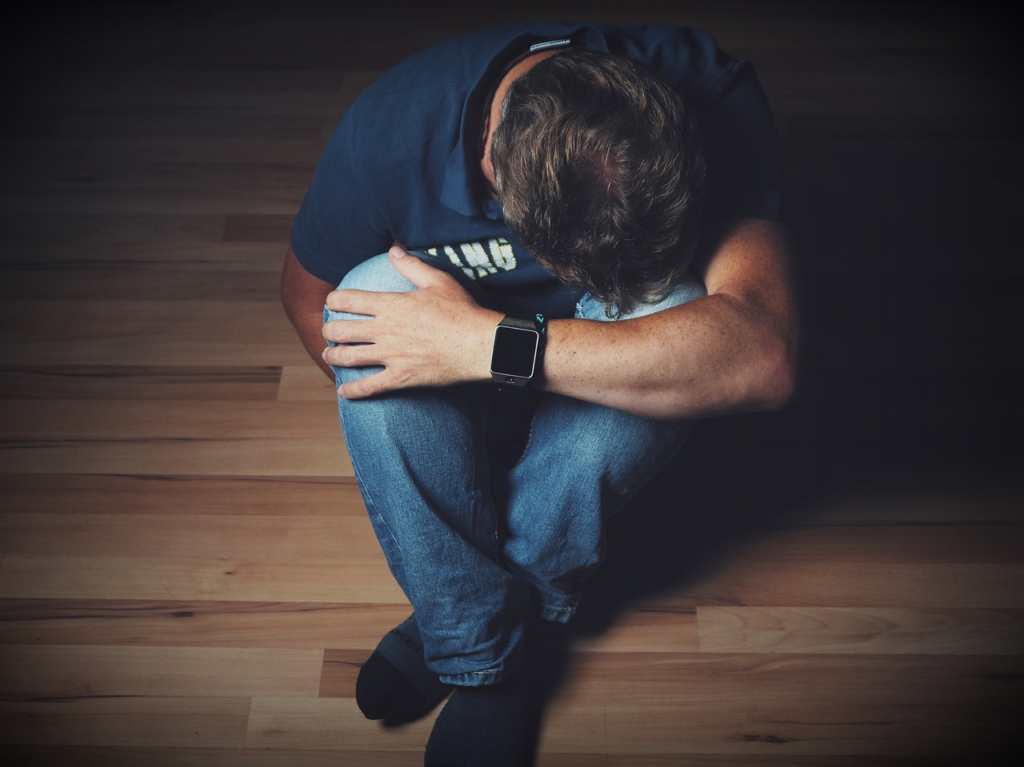
Are you or a loved one beginning the walk of detoxing from heroin? If so, here is a list of common symptoms associated with heroin withdrawal, plus guidance on how to successfully navigate heroin detox.
The Truth About Heroin Addiction
Heroin addiction is a serious problem in the United States. According to the Centers for Disease Control (CDC), approximately 15,000 people in the U.S. died from a drug overdose involving heroin in 2018 [1]. This means nearly 5 in every 100,000 American deaths is due to heroin. In addition to the risk of death, repeated heroin use causes the brain to deteriorate and changes its structure and physiology, leading to long-term (sometimes irreversible) brain damage [2].
Detoxing from Heroin: First Steps to Recovery
The first step in overcoming heroin addiction is detoxification. Detoxing from heroin is both a physical and mental process that occurs when the drug leaves the body. When detoxing from heroin, the body will go through a withdrawal period during which the individual may experience serious medical complications and extreme discomfort. Therefore, detoxification should always take place under the supervision of medical professionals at a drug treatment facility.
What to Expect When Detoxing from Heroin
When a person who is addicted to heroin stops using, they will soon begin to experience withdrawal symptoms. Withdrawal symptoms typically start to appear within 6 to 24 hours after the last dose, although factors like how long the drug was used and the quantity of drug consumed will affect the detox timeline.
Symptoms of withdrawal will continue to appear within the first one or two days of detox and will typically peak in intensity around day five or seven. After day seven of the detox, symptoms will usually begin to diminish, although heavy users may experience post-acute withdrawal symptoms (PAWS) for the next several weeks or even months.
Symptoms of heroin withdrawal include:
- Nausea and vomiting
- Abdominal pain
- Diahrrea
- Cramps in the limbs
- Headaches
- Pain in the muscles and bones
- Shakes
- Cold sweats
- Dilated pupils
- Sweating
- Fever
- Irritability
- Depression
- Anxiety
- Insomnia
Although most people experience similar symptoms of withdrawal during a heroin detox, the level of symptom intensity will greatly vary based on how often the drug was used, the potency, method of ingestion, and the amount used.
Treatment for Detoxing from Heroin
 Due to the intense cravings and physical symptoms that accompany heroin detox, it is critical for detoxification to take place under medical supervision. When detox is conducted in a medically-equipped addiction treatment center, the chances of a successful rehab greatly increase, and numerous complications can be avoided.
Due to the intense cravings and physical symptoms that accompany heroin detox, it is critical for detoxification to take place under medical supervision. When detox is conducted in a medically-equipped addiction treatment center, the chances of a successful rehab greatly increase, and numerous complications can be avoided.
For example, if withdrawal symptoms are not monitored and treated properly, complications like electrolyte imbalances and dehydration could occur, leading to serious injury or even death. Another major risk associated with heroin detox is suicide. During heroin detox, many people experience extreme anxiety and depression, and since drug users often have impaired impulse control, this can sometimes lead to fatal outcomes.
The good news is, under proper supervision and treatment, the chances of complications during a heroin detox greatly diminish. In fact, many of the symptoms of heroin withdrawal can be significantly reduced thanks to the use of medications and drugs administered by health professionals at a medical detox facility.
If you or a loved one are beginning the journey of detoxing from heroin, don’t hesitate to seek help. Your chances of a successful detox and rehabilitation greatly increase if you seek the help and support of an addiction treatment center. Start by talking to your doctor or calling the Substance Abuse and Mental Health Services Administration helpline at 1-800-662-4357.
References:
[1] Centers for Disease Control and Prevention. (2020, March 19). Heroin Overdose Data. Centers for Disease Control and Prevention. https://www.cdc.gov/drugoverdose/data/heroin.html.
[2] National Institute on Drug Abuse. (2020, May 28). What are the long-term effects of heroin use? National Institute on Drug Abuse. https://www.drugabuse.gov/publications/research-reports/heroin/what-are-long-term-effects-heroin-use.
About the Author:
 Sarah Musick is a freelance writer who specializes in eating disorder awareness and education. After battling with a 4-years long eating disorder, she made it her mission to help others find hope and healing in recovery.
Sarah Musick is a freelance writer who specializes in eating disorder awareness and education. After battling with a 4-years long eating disorder, she made it her mission to help others find hope and healing in recovery.
Her work has been featured on numerous eating disorder blogs and websites. When she’s not writing, Sarah is off traveling the world with her husband.
The opinions and views of our guest contributors are shared to provide a broad perspective of addictions. These are not necessarily the views of Addiction Hope, but an effort to offer a discussion of various issues by different concerned individuals.
We at Addiction Hope understand that addictions result from multiple physical, emotional, environmental, and genetic factors. If you or a loved one are suffering from an addiction, please know that there is hope for you, and seek immediate professional help.
Published on February 23, 2021, on AddictionHope.com
Reviewed & Approved on February 23, 2021, by Jacquelyn Ekern, MS, LPC
